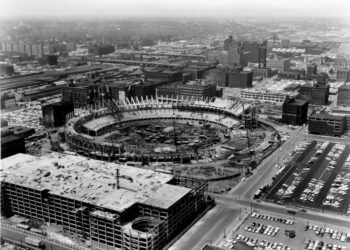Original article on Reason.com
From shelters to soup kitchens, zoning laws often outlaw churches and religious nonprofits from carrying out their charitable missions on land they own. A new bill in California could make their lives a little easier by allowing them to build housing on their properties without all the usual red tape.
“California has a deep housing shortage, and we need every available tool to create the housing we so desperately need,” said state Sen. Scott Wiener (D–Calif.). “Let’s make it easier for these nonprofits to build these critically needed homes.”
Wiener is the author of S.B. 4, which would allow religious institutions and nonprofit colleges to build affordable housing complexes on their property, regardless of local zoning laws and density restrictions.
The bill would prevent cities from using long and discretionary approval processes to block or delay these projects. NIMBY (not in my backyard) neighbors wouldn’t be able to stop them by filing endless environmental lawsuits.
Wiener introduced the same bill in 2020. It passed unanimously in the state senate but was never brought up for a vote in the assembly.
The last version of S.B. 4 doesn’t authorize churches to go on a development free-for-all.
The bill includes density restrictions that would limit new housing projects to somewhere between 15 and 40 units per acre.
This new housing would have to be provided to low-income renters at below market rates—effectively requiring them to be government-subsidized projects. Religious builders would also have to pay construction workers prevailing (union) wages. That raises construction costs.
The organization representing the carpenters’ unions (who have a storied history of blocking housing development) has endorsed the bill.
That’s all still directionally less regulation on churches and nonprofit colleges getting into the housing game. Often their efforts are stopped by rules both byzantine and bizarre.
When Clairemont Lutheran Church in San Diego wanted to redevelop its fellowship hall into affordable housing, local planning officials told them no dice. At the time, city rules required a certain number of parking spaces per inch of pew space. Because Clairemont Lutheran’s plans required eliminating some of those required parking spaces, they weren’t allowed to move forward.
“Two weeks of the year that parking lot is utilized to the full extent. 50 weeks of the year it’s not,” Eddie McCoven, a spokesperson for the Clairemont Lutheran Church, told Reason back in 2020.
When a church in Palo Alto wanted to convert its underutilized parking lot for a “safe parking” site where people could sleep in their cars overnight, it took them two years and lots of negotiations with the neighbors in order to get approval.
Over the past couple of years, a series of “Yes in God’s Backyard” bills have chipped away at some of the rules facing churches wanting to build housing. In 2020 and 2022, the California Legislature passed two laws that scale back parking requirements for religious-sponsored development.
Earlier this year, the legislature also passed a new law that allows housing development in commercial-zoned areas.
S.B. 4 goes much further by allowing these projects to be built in most zoning districts and exempting them from the normal delaying processes. It doesn’t completely liberate good Samaritans but does at least ease restrictions on their goodwill.









Beyond the spectacle, Kansas City prepares for World Cup reality